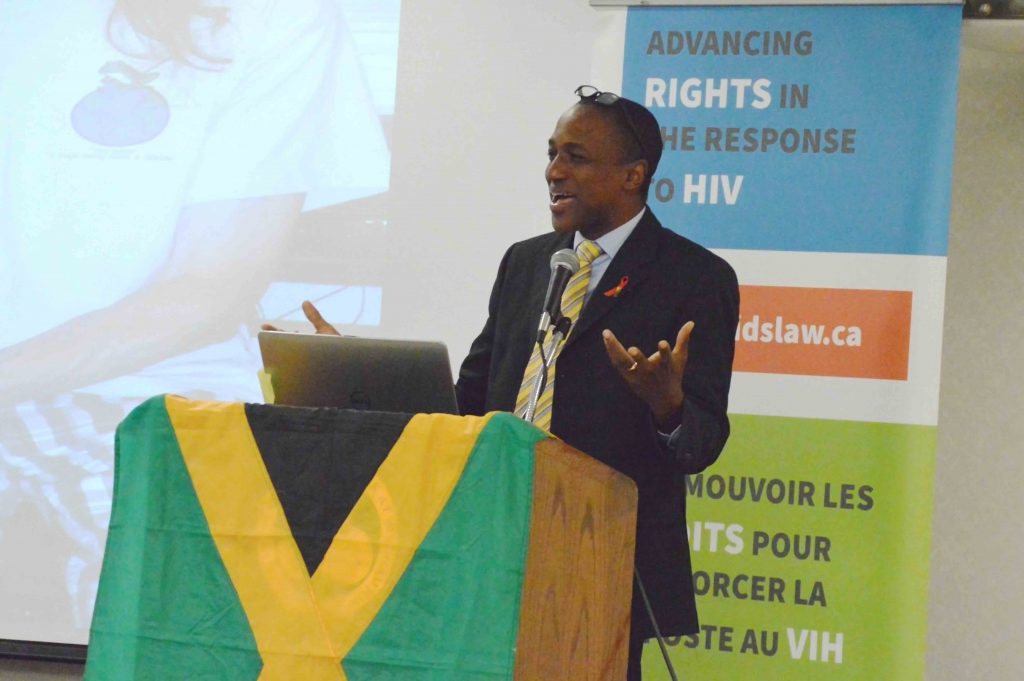
On Tuesday evening in Old Union Hall, Maurice Tomlinson, a native Jamaican and a leading figure in the gay rights movement in the Caribbean, delivered a talk about LGBTQ rights in Jamaica, a country that has been called the most “homophobic place on the Earth” by Time Magazine.
According to Tomlinson, a poll in 2014 showed that 91 percent of the population of Jamaica believed homosexuality was morally wrong. He said that widely held Evangelical Christian principles and a high rate of HIV/AIDS combine to create a culture in Jamaica where gay men can become the targets of hostility and violence.
“This is hate being spewed Monday through Friday, then on Saturday and Sunday it is reinforced in church,” Tomlinson said. “The result is a perfect storm of homophobia.”
Tomlinson described in detail the hardships of LGBTQ youth, particularly those who are poor. According to Tomlinson, many have been kicked out of their homes and are forced to live on the streets or even in sewers. Tomlinson said that statistics show 90 percent of homeless gay men in Jamaica have tested positive for HIV, and that a culture of fear has emerged from this constant discrimination.
The case of Dwayne Jones, a 14-year-old Jamaican girl who was was kicked out of her home for being a transgender female, was used as an example. In 2013, at 16 years old, she attended a local gathering and was quickly outed by a fellow attendee. A mob formed and Jones was stabbed, shot and run over. To date, no arrests have been made.
“They do this because they do not think that we are humans,” Tomlinson said. “We are basically un-apprehended criminals. When I reported my death threats to the police, the officer basically told me to get out of his office.”
Tomlinson’s work tries to combat these issues directly. He has organized advocacy training for the public, held pop-up protests and led pride parades to increase visibility. Tomlinson also mentioned his ongoing mission to create a homeless shelter for LGBTQ youths in Jamaica.
“The major challenge for LGBTQ people in Jamaica is that people think we are freaks, that we are the other,” Tomlinson said. “They don’t realize that we are their sons, their daughters. They don’t know us and they fear what they don’t know.”
Kelly Clark, the director of Binghamton University’s LGBTQ Center, said that Tomlinson is the inaugural speaker of the University’s Human Rights Lecture Series, and that it synchronizes well with the University’s mission to give students a more global perspective.
“We seek to deepen the connection that our students have with the world,” Clark said. “The vision of the lecture is to invite an LGBTQ activist from another part of the world to talk about their ‘boots on the ground’ advocacy for LGBTQ rights.”
Brandon Bocanumenth, a junior majoring in psychology, said he came to the lecture with some knowledge of the situation in Jamaica, but left inspired by Tomlinson’s activism.
“I feel like when most people think of LGBTQ problems, they think of America … but people forget there are places like this in the world where you can go to jail or get beaten up [for being LGBTQ]” Bocanumenth said. “I think the most interesting part was when he talked about the activism they’re doing. It wasn’t just ‘this is what it’s like in Jamaica,’ it was ‘this is what it’s like and this is what we’re doing.’”


